An undeniable historical truth: Artificial Intelligence was founded in the East!
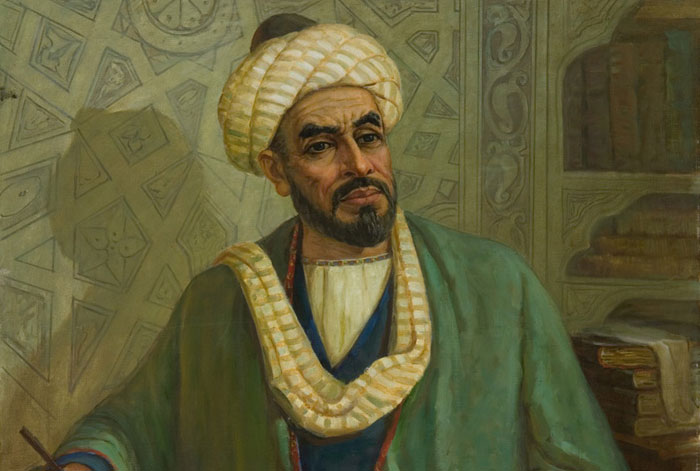 Did you know that the true foundations of digital technologies, artificial intelligence, and other groundbreaking innovations were not laid in Europe, but in the East by Al-Khwarizmi? Recognized as an original innovator in the field of science, Abu Abdullah Muhammad ibn Musa al-Khwarizmi is one of the great scholars who not only shaped his own era but also transformed the course of human civilization. His name lives on at the core of two monumental scientific terms: algebra and algorithm.
Did you know that the true foundations of digital technologies, artificial intelligence, and other groundbreaking innovations were not laid in Europe, but in the East by Al-Khwarizmi? Recognized as an original innovator in the field of science, Abu Abdullah Muhammad ibn Musa al-Khwarizmi is one of the great scholars who not only shaped his own era but also transformed the course of human civilization. His name lives on at the core of two monumental scientific terms: algebra and algorithm.
Today, his scientific discoveries form the very foundation of digital devices, programming, databases, cryptography, artificial intelligence, and even space exploration. Understanding this allows us to deeply appreciate the vast and profound scientific legacy upon which the modern world is built.
Al-Khwarizmi was an original innovator in the field of science whose legacy is not limited to a single discipline his contributions spanned several branches of mathematics, astronomy, geography, geometry, arithmetic, and computational systems. Through his work Kitab al-Jabr wa al-Muqabala, algebra emerged as an independent scientific discipline. His treatises on arithmetic introduced the decimal positional system to the world, while his Zij laid the foundation for a new era in astronomy. Works like Kitab Surat al-Ard exemplified precision and scientific rigor in geography, and his map al-Kharita al-Ma’muniya helped shape the global worldview.
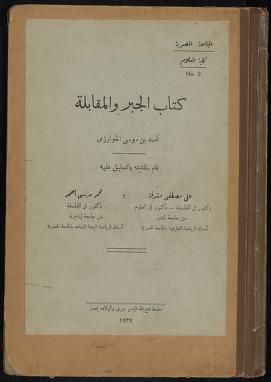 What is remarkable is that Al-Khwarizmi achieved outstanding success across many fields not just one. At a time when interdisciplinary integration is being emphasized globally, his example as a universal scholar is more relevant than ever. Al-Khwarizmi was not merely a theoretical scientist; he possessed a deeply practical mindset and understood the vital role of knowledge in societal development. He was a true advocate of enlightenment.
What is remarkable is that Al-Khwarizmi achieved outstanding success across many fields not just one. At a time when interdisciplinary integration is being emphasized globally, his example as a universal scholar is more relevant than ever. Al-Khwarizmi was not merely a theoretical scientist; he possessed a deeply practical mindset and understood the vital role of knowledge in societal development. He was a true advocate of enlightenment.
Al-Khwarizmi was born around 783 in Khwarazm. While detailed records of his childhood and early education are scarce, it is believed that he received his foundational education in Khwarazm and other cultural centers of Central Asia. After Caliph al-Ma’mun, son of Harun al-Rashid, ascended to the throne in 813, Al-Khwarizmi was invited to Baghdad. There, he worked at the Bayt al-Hikma - the famed House of Wisdom and eventually led the institution, contributing immensely to its scientific legacy.
His Role in the Advancement of Science
Al-Khwarizmi made groundbreaking contributions to the exact sciences, particularly in mathematics, astronomy, and geography. One of his most significant achievements in mathematics is his seminal work Kitab al-Jabr wa al-Muqabala. Through this treatise, algebra was established as an independent scientific discipline. In the book, Al-Khwarizmi presented systematic methods for solving linear and quadratic equations. These foundational approaches laid the groundwork for the modern field of algebra as we know it today.
The Concepts of Arithmetic and Algorithm
In his treatise on arithmetic, Al-Khwarizmi introduced methods for representing large numbers using nine digits adopted from Indian numerals and a small circle — zero. This formed the foundation for the decimal positional number system, which later spread across the world. The Latin translation of his work began with the phrase “Dixit Algorizmi” (“Al-Khwarizmi says”). The term Algorizmi is derived directly from his name, which eventually evolved into the modern scientific term algorithm.
Astronomy — The Work Zij
Al-Khwarizmi’s astronomical work titled Zij was a major scientific achievement of its time. It provided essential information about the movements of the Sun, Moon, and five visible planets, as well as trigonometry, geographic coordinates, and solar and lunar eclipses. Significantly, the section on trigonometry presented the first systematically arranged tables of sine and cosine values. This work later served as a key reference for scholars like Mirzo Ulughbek and other astronomers.
His Contributions to Geography and Cartography
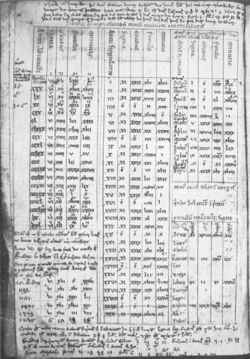 Through his map al-Kharita al-Ma’muniya, Al-Khwarizmi made a significant contribution to the science of geography. This map, drawn on the wall of Caliph al-Ma’mun’s palace, depicted the inhabited part of the Earth — the rub’ ul-maskun. It refuted Ptolemy’s earlier claim that land was entirely surrounded by a world ocean. Instead, Al-Khwarizmi scientifically demonstrated that landmasses are indeed bordered by oceans, offering a more accurate understanding for his time. This was a major scientific breakthrough of the era.
Through his map al-Kharita al-Ma’muniya, Al-Khwarizmi made a significant contribution to the science of geography. This map, drawn on the wall of Caliph al-Ma’mun’s palace, depicted the inhabited part of the Earth — the rub’ ul-maskun. It refuted Ptolemy’s earlier claim that land was entirely surrounded by a world ocean. Instead, Al-Khwarizmi scientifically demonstrated that landmasses are indeed bordered by oceans, offering a more accurate understanding for his time. This was a major scientific breakthrough of the era.
“Kitab Surat al-Ard” — A Geographical Treatise
In his work Kitab Surat al-Ard (“The Book of the Image of the Earth”), Al-Khwarizmi provided the coordinates of nearly 2,400 geographical points. The Pacific Ocean is referred to as al-Bahr al-Muzallam in the text, and it even contains information about the Korean Peninsula and the Japanese islands. This book, when studied alongside the map, is regarded as a rare scientific source of geographic knowledge.
The Influence of His Scientific Legacy
Al-Khwarizmi’s works spread widely not only throughout the Islamic East but also across Europe. His treatises on algebra and arithmetic were translated into Latin and laid the foundation for the development of science in medieval Europe. In particular, the term “algorithm,” derived from his name, is now one of the fundamental concepts in modern computer science.
Whether we open a calculator on our phone, navigate using a digital map, or write a line of code we are, in essence, walking alongside Al-Khwarizmi. His principles live on in our daily decisions. He is not merely a figure of the past, he exists in our present, not only in books, but in the very fabric of our modern lives.
The “First Renaissance Period” exhibition, planned to be established at the Center of Islamic Civilization, will embody such remarkable scientific discoveries. This exhibition will not only highlight Al-Khwarizmi but also showcase many other great scholars and their invaluable contributions to the history of science and knowledge. Through this exhibition, visitors will gain not only historical insight but also a deeper understanding of the foundations of modern technologies. In a word, it can rightfully be called a journey into the world of science a gateway to the realm of great discoveries.
Most read
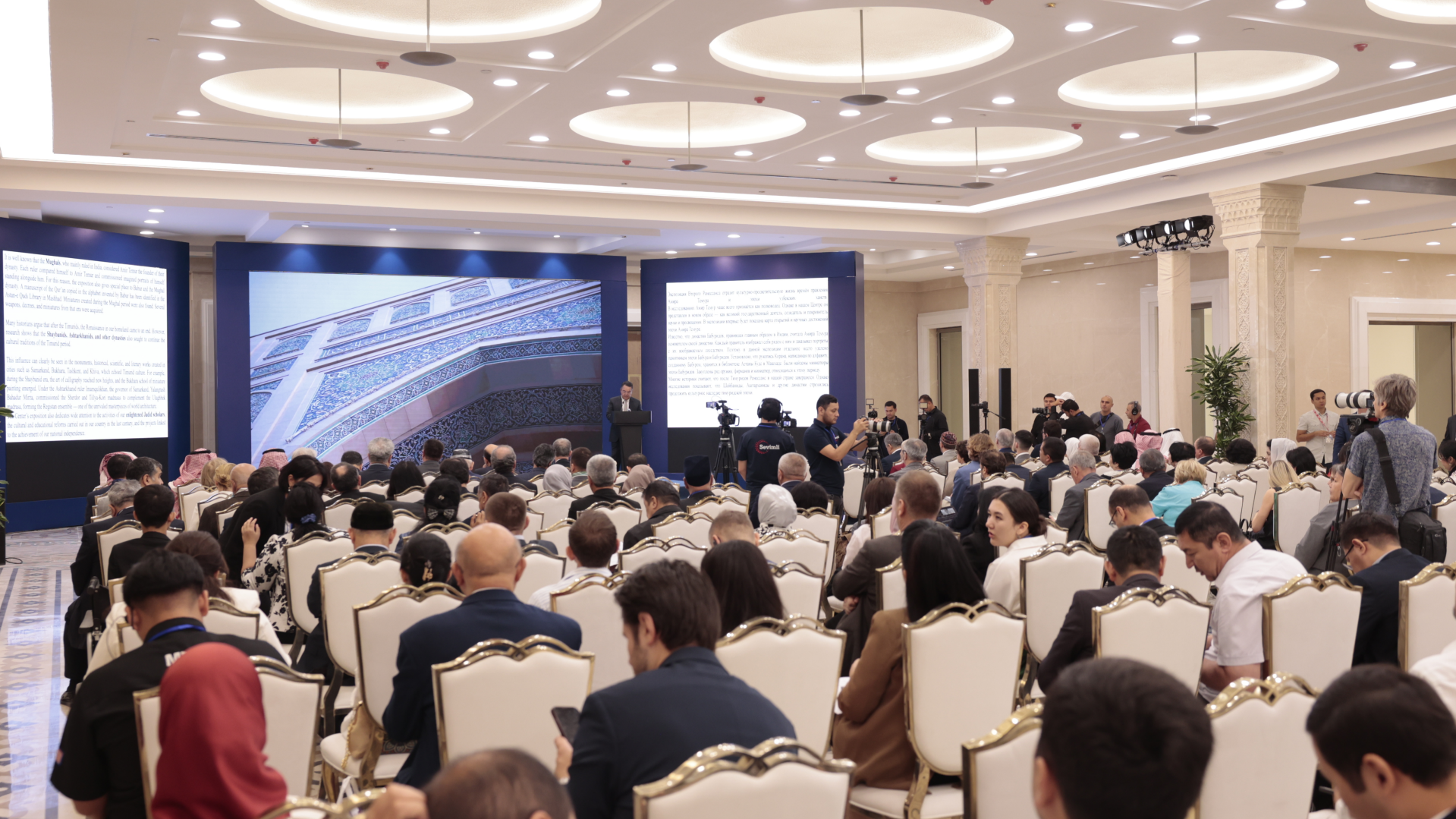
Over 100 experts from more than 20 countries of the world are in Tashkent!
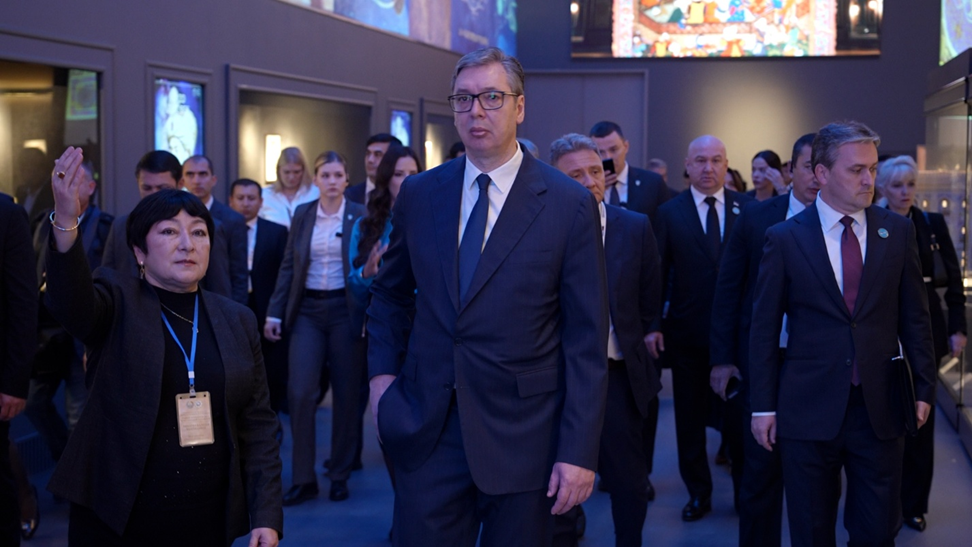
President of Serbia Aleksandar Vučić visited the Islamic Civilization Center in Uzbekistan
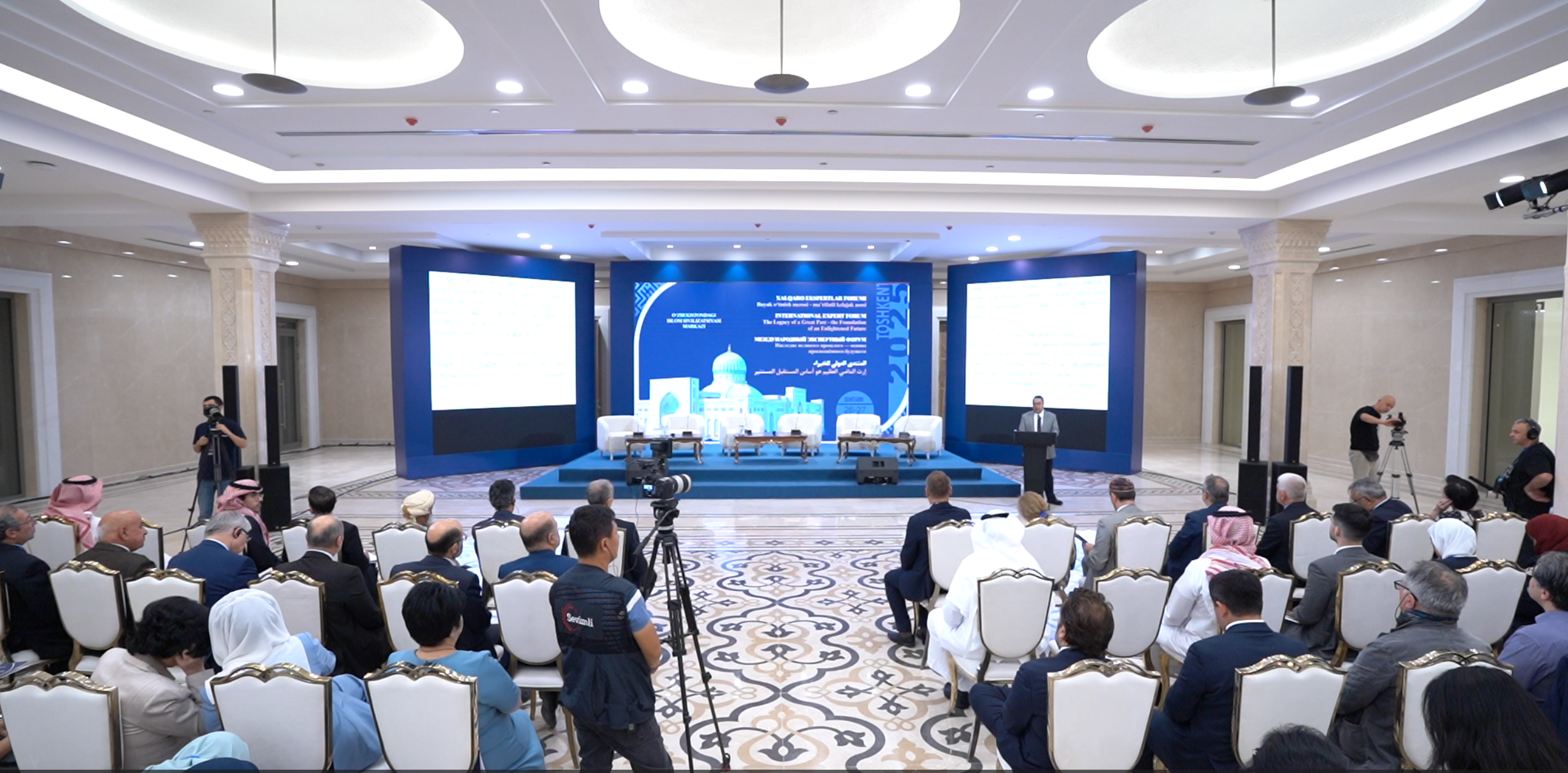
The Center for Islamic Civilization – a global platform leading towards enlightenment











